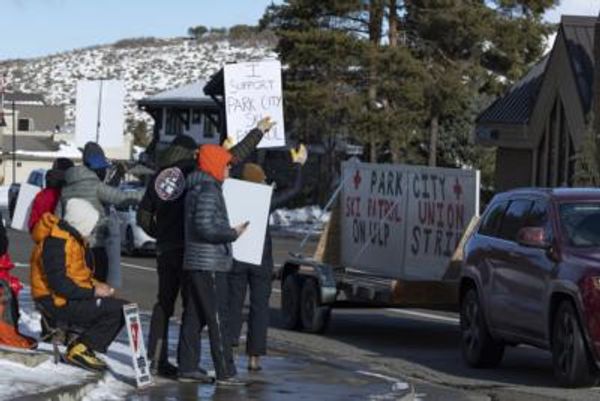
In 2022 I was contacted by a friend of a friend – let’s call her Tiana – who was distraught. Her mum had become sick a few months earlier, so Tiana, who was her mum’s only child, had moved out of her own house and into her mum’s flat in south London, to care for her. Then, in March 2022, her mum died suddenly. Before Tiana even had the chance to arrange her funeral, she received an eviction notice from the council, giving her only a few days to move out. Her mum had lived there for 20 years. Tiana asked them for a two-week extension on compassionate grounds, to give her time to sort through her mum’s stuff and figure out where she was going to live. They wouldn’t give it to her.
I met Tiana at the top-floor flat a week after her mum’s funeral. The council had told her she had to be out that day, and they were coming to change the locks at 2pm. All her mum’s medical equipment was piled up outside on the landing; the district nurses hadn’t had a chance to come and collect it yet. Tiana didn’t know what to do with the rest of her mum’s stuff, or her own. She couldn’t afford to pay for storage; she was on benefits.
After I shamed them online that day, the council agreed to give Tiana more time, but a few days later, while she was out, they forced entry, changed the locks and got a removal team to put all her mum’s stuff outside on the landing. Tiana was distraught; she couldn’t believe they had gone back on their word.
It doesn’t get more morally wrong than someone losing a parent and then being made homeless straight after, but that is what’s happening. Tiana’s is not an isolated case. I’ve lost count of the number of young people who have contacted me when this has happened: they’re living with, or have moved in to care for, a sick parent, but as soon as the parent dies, the council or housing association tells them they are no longer eligible to live there as the property was in their parent’s name, and issues them a notice to quit – usually ordering them to leave within 30 days. They get kicked out and are either made homeless or are shoved in temporary accommodation, not taking into consideration the fact they’ve just lost their parent or guardian.
This nearly happened to me and my two sisters. We were given an eviction notice by our social housing provider after our dad died in 2020. We were lucky because it was during the Covid pandemic, and they couldn’t just turf people out on to the street. Otherwise, I would have been in exactly the same situation as Tiana.
Looking at the demographics, this is a class issue but it’s also a race issue, judging by the people who have contacted me. Disproportionately they have been young Black and ethnic minority individuals, but as long as you are a social housing tenant, it can happen to anyone.
Legally, if not morally, the housing providers are in a pretty comfortable situation in these cases. It used to be that social housing tenants could pass on their tenancy to any other family member living with them when they died, through succession, but in about the 2010s, many housing providers slowly began changing tenancy agreements to say you could only pass on a property to a wife, husband or civil partner. Residents may not read or understand the small print in their agreements and pick up on this, but even if they do, the providers have the upper hand. They are offering you permanent housing as opposed to being homeless or put in temporary accommodation. You are going to sign that tenancy agreement regardless of what’s in it.
You can see the council or housing association’s motivation: they want these properties back so they can put in another family on their waiting list. And the remaining occupiers – such as Tiana – probably won’t need as much space. But providers are not offering them smaller homes or any other options. Usually they just send an eviction notice. This defeats the purpose of social housing. They’re pushing vulnerable individuals who haven’t even had time to grieve back to the bottom of the waiting list. If you’re a boy or a young man, especially, you’re not prioritised; you’ll be waiting decades.
The new Labour government has pledged to outlaw no-fault evictions in the private rented sector, but local authorities and housing associations clearly feel they can do what they want, regardless of the circumstances. It shows the contempt these people have towards social housing tenants, especially young people: finding yourself homeless at a young age, you’re going to struggle to find help and support from local authorities; you’re going to struggle to get a decent level of education or a stable job. A lot of people living in social housing are already from disadvantaged backgrounds as it is. This is destroying their prospects.
People are horrified when I have highlighted these individual cases (the last time I saw Tiana, incidentally, about a year later, she seemed to be in a better place in every sense). But pressure has not been applied politically – and ultimately, that is where change comes from. Housing providers should not be allowed to put clauses into tenancy contracts that make this behaviour possible. It wouldn’t take much for the new Labour government to do something about this.
• Do you have an opinion on the issues raised in this article? If you would like to submit a response of up to 300 words by email to be considered for publication in our letters section, please click here.
• In the UK, Citizens Advice offers a helpline on 0800 240 4420







